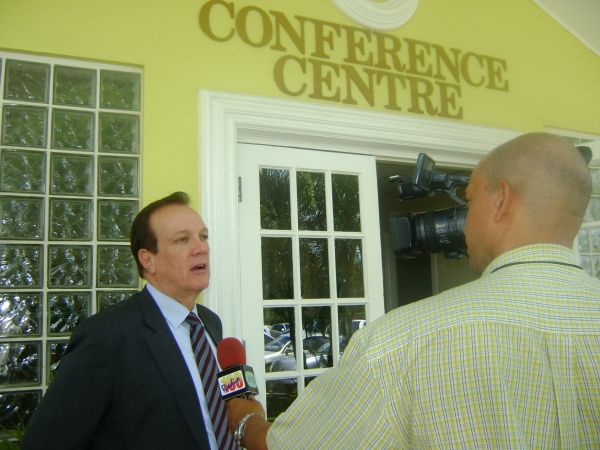Department of Finance
 On Tuesday, 7th September, 2010, the United Nations Sub-regional Team (UNST) for Barbados and the Organization for Eastern Caribbean States (OECS), in partnership with the OECS Secretariat, hosted an in-country consultation. This consultation formed part of the preparation process to develop the United Nations Development Assistance Framework (2012-2016) for Saint Lucia and the sub-region.
On Tuesday, 7th September, 2010, the United Nations Sub-regional Team (UNST) for Barbados and the Organization for Eastern Caribbean States (OECS), in partnership with the OECS Secretariat, hosted an in-country consultation. This consultation formed part of the preparation process to develop the United Nations Development Assistance Framework (2012-2016) for Saint Lucia and the sub-region.
The United Nations Development Assistance Framework (UN-DAF) articulates a coherent vision and strategy for a united approach towards common development goals at the country level and is the instrument that will define and drive operational activities of the entire United Nations system.
In his opening statement, Prime Minister the Honorable Stephenson King outlined that the UN-DAF consultation was indeed timely “as the Government of Saint Lucia has recently embarked on the formulation of a Medium Term Development and Strategic Plan.” He went on to say “It is hoped that initiatives such as this will position Saint Lucia to better respond to the challenges and opportunities of the global economy. The United Nations Development Assistance Framework we anticipate will galvanize the various national development endeavors and provide the broader framework which informs national development objectives,”
With technical support from members of the United Nations Subregional Team for Barbados and the OECS, attendees at the consultative session deliberated on areas of cooperation among the UN system, Government and other development partners. These areas were:
1. Climate change, environment and energy
2. Governance, rule of law and citizen’s security
3. Social protection and poverty reduction; focusing on child adolescent and youth development
4. HIV/AIDS, advocacy and capacity building to reduce stigma and discrimination
5. Food security
According to Mr Daniel Baker, UNFPA Director (Ag.), the over seventy representatives of Government, civil society, private sector, community based organizations development organizations and regional institutions were charged with “coming up with an estimation of the national priorities in respect to the five outlined areas of focus.”
Said Baker, “This is going to make the development approaches in the region more coherent. Although some progress has been made, the global financial situation and the worsening economy have made it more difficult to attain some of our objectives. That just means that we have to work even harder in those focus areas.”
With in-country consultations already held in Dominica and Grenada, organizers have touted Saint Lucia as the most participatory; with high level representation by the public and private sectors.








